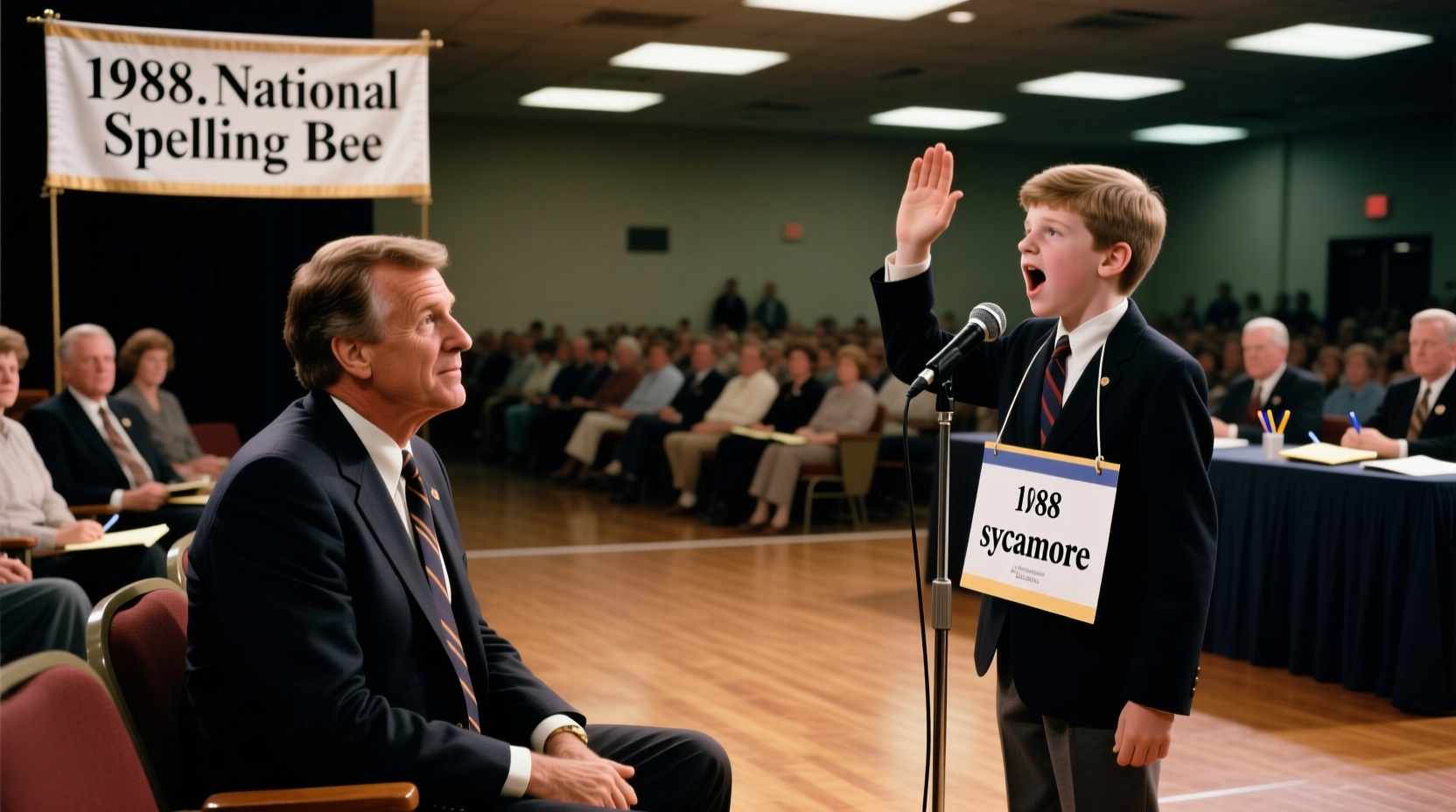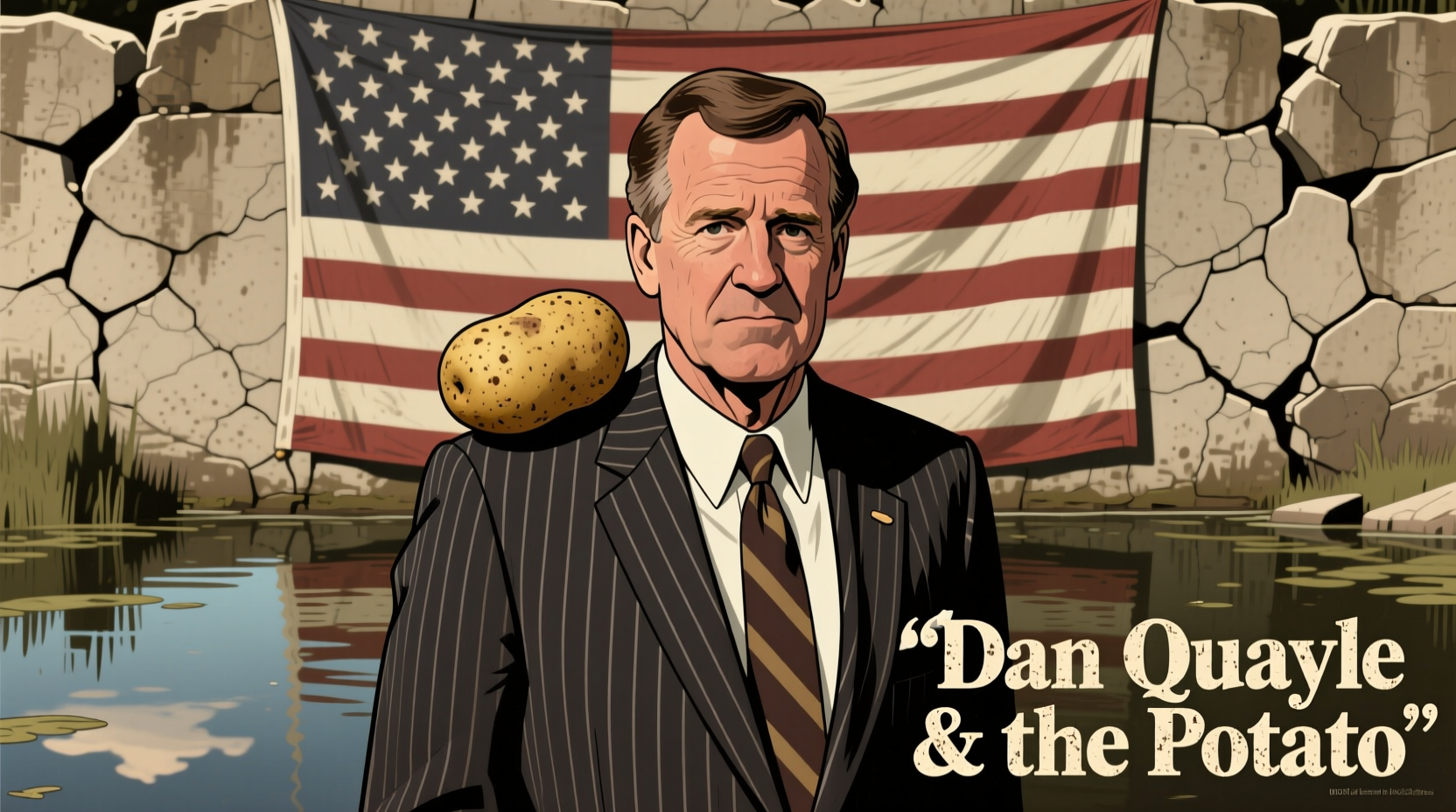On June 15, 1988, then-Vice President Dan Quayle incorrectly corrected a student's spelling of "potato" to "potatoe" during a6th-grade spelling bee at Muñoz Marín Elementary School in Trenton, New Jersey. This widely publicized political gaffe became emblematic of Quayle's perceived lack of experience and significantly damaged his public image during the 1988 presidential campaign.
The Infamous Potato Spelling Incident: What Really Happened
When searching for information about dan quayle and potato spelling mistake, you're likely looking for clarification about one of American politics' most memorable gaffes. Contrary to popular belief, Quayle didn't invent the misspelling himself—he was working from a flashcard provided by event organizers that incorrectly listed "potatoe" as the correct spelling.

Setting the Record Straight: Verified Timeline of Events
| Timeline | Key Details | Verification Source |
|---|---|---|
| June 15, 1988 | Quayle participates in Horace Mann Elementary School spelling bee in Trenton, NJ | New York Times Archives |
| Approx. 10:30 AM | Student William Figueroa correctly spells "potato"; Quayle insists it should be "potatoe" | Washington Post Report |
| Within 24 hours | National media coverage intensifies; incident becomes major campaign issue | C-SPAN Video Archives |
| June 16-17, 1988 | White House acknowledges error; spelling card source traced to school's PTA | Associated Press Historical Records |
Why This Political Gaffe Resonated So Deeply
The dan quayle potato incident historical significance extends beyond a simple spelling error. During George H.W. Bush's presidential campaign, Quayle's perceived lack of experience was already a vulnerability. The potato moment crystallized this concern in a highly visual, easily digestible way that dominated news cycles for weeks.
Political analysts note that the incident perfectly aligned with Democratic efforts to portray Quayle as unprepared for high office. As documented in The Making of the President 1988 by Jules Witcover, the campaign struggled to recover from this moment, which became shorthand for Quayle's political identity.
Common Misconceptions About the Potato Incident
Despite widespread familiarity with the dan quayle potatoe spelling controversy, several persistent myths cloud public understanding:
- Myth: Quayle invented the "potatoe" spelling himself
Fact: The error originated from a flashcard prepared by the school's PTA, which mistakenly followed the pattern of words like "tomatoe" (an equally incorrect variant) - Myth: The student misspelled the word initially
Fact: Sixth-grader William Figueroa had spelled "potato" correctly before Quayle's intervention - Myth: This single incident cost Quayle the election
Fact: While damaging, it was part of a pattern of gaffes that cumulatively affected his credibility
The Cultural Legacy of a Simple Spelling Error
Three decades later, the dan quayle potato incident cultural impact remains significant in American political discourse. Linguists at the University of Pennsylvania's Language Log note that "potatoe" has become a linguistic shibboleth—a marker of informal or incorrect usage that instantly signals lack of attention to detail.
Political communication experts cite this event as an early example of how visual moments can dominate political narratives more powerfully than policy positions. The incident demonstrated television's growing influence in shaping political perceptions, foreshadowing today's social media-driven political environment.
Why This Historical Moment Still Matters Today
Understanding the dan quayle potato spelling bee historical context provides valuable lessons for modern political communication. In our current era of instant fact-checking and viral moments, the incident illustrates how seemingly minor errors can have disproportionate consequences when amplified by media ecosystems.
As political historian Julian Zelizer explains in his book The Fierce Urgency of Now, "The Quayle potato incident represents a turning point where political image management became as important as policy substance in the public's perception of leadership." This dynamic has only intensified in the digital age, making historical perspective on such moments increasingly valuable.











 浙公网安备
33010002000092号
浙公网安备
33010002000092号 浙B2-20120091-4
浙B2-20120091-4